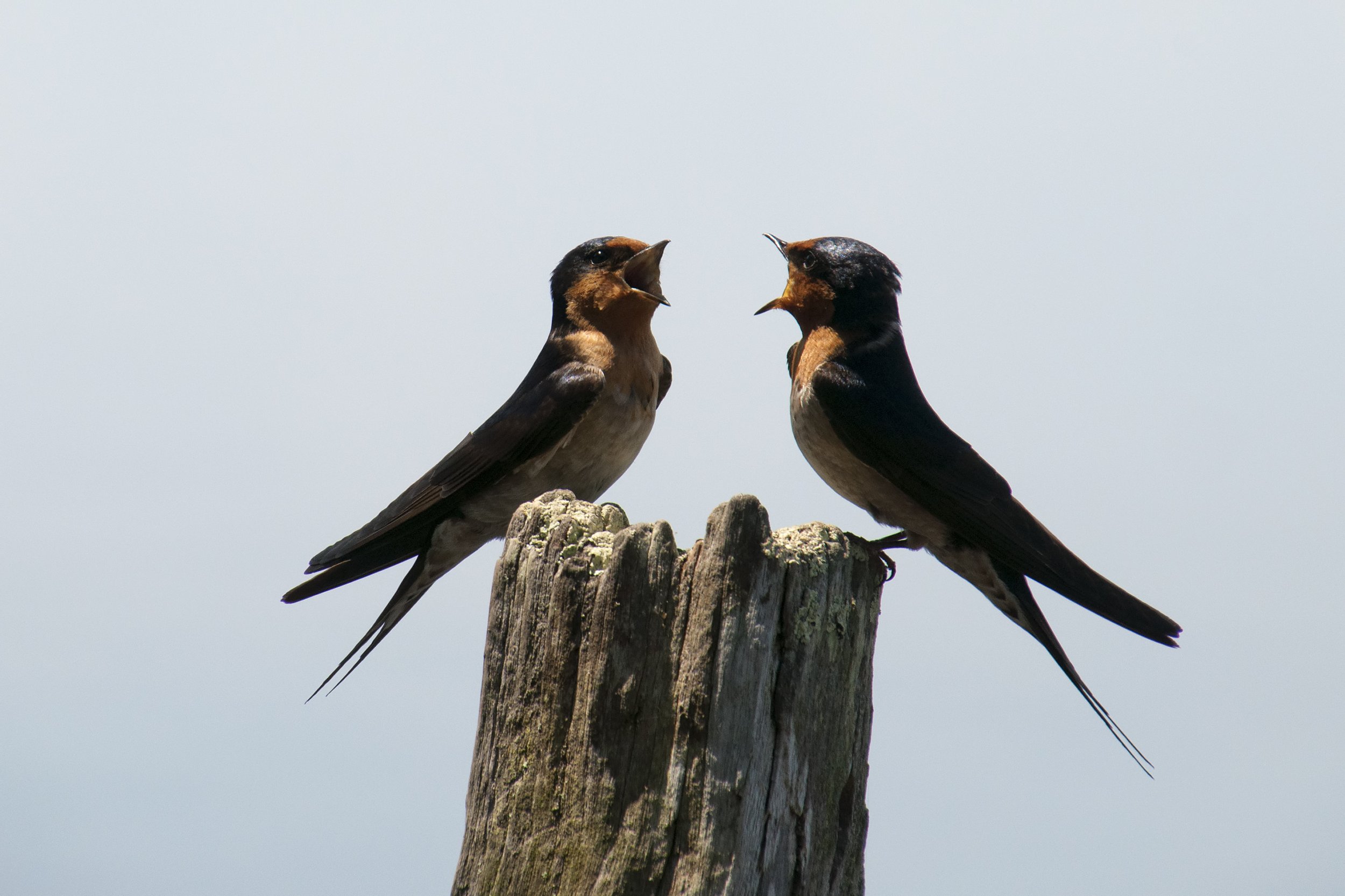
Language is perhaps the most distinctive of human traits, but its evolution remains a mystery. Our communication is underpinned by turn-taking—or the orderly exchange of communicative signals—which has been found to be largely universal across cultures.
But this turn-taking behavior, which may seem quintessentially human, is actually widespread across the animal kingdom, according to a large-scale review of studies, published in the journal Philosophical Transactions of the Royal Society B: Biological Sciences.
The review—which involved researchers from the Universities of York and Sheffield, the Max Planck Institute for Evolutionary Anthropology in Germany, and the Max Planck Institute for Psycholinguistics in the Netherlands—noted many instances of turn-taking in animal communication between species as diverse as African elephants (which communicate with rumbling sounds), naked mole rats (which trade soft chirps) and fireflies (which alternate flashes in courtship rituals).
In their study, the researchers highlighted that one of the hallmarks of turn-taking across all species is fine timing. For example, in some species of songbird, the gap between the calls of two different birds is often less than 50 milliseconds.
On the other hand, communication in some species is much slower. Sperm whales, for example, exchange sequences of clicks with a gap of around two seconds between each vocalization. In humans, there is usually a gap of roughly 200 milliseconds between turns in a conversation.
While many studies have been conducted into turn-taking behavior in animals, we know remarkably little about it, partly because the literature is so fragmented that large-scale cross-species comparison is all but impossible, according to the researchers.
"Overall, direct comparisons of turn-taking skills of nonhuman animals in relation to language origins are highly constrained by lack of data, the application of different terms, methodological designs and study environments," the authors wrote in the study.
"Furthermore, investigations have so far mainly been focusing on single call types or songs of species, limiting an in-depth understanding of the variability and underlying cognitive flexibility of turn-taking systems found in the animal kingdom."
In light of this, the researchers proposed a new framework for future studies on turn-taking to make cross-species comparisons easier.
"The ultimate goal of the framework is to facilitate large-scale, systematic cross-species comparisons," Kobin Kendrick, from the University of York's Department of Language and Linguistic Science, said in a statement.
"Such a framework will allow researchers to trace the evolutionary history of this remarkable turn-taking behavior and address longstanding questions about the origins of human language."
Uncommon Knowledge
Newsweek is committed to challenging conventional wisdom and finding connections in the search for common ground.
Newsweek is committed to challenging conventional wisdom and finding connections in the search for common ground.
About the writer
Aristos is a Newsweek science reporter with the London, U.K., bureau. He reports on science and health topics, including; animal, ... Read more
To read how Newsweek uses AI as a newsroom tool, Click here.








